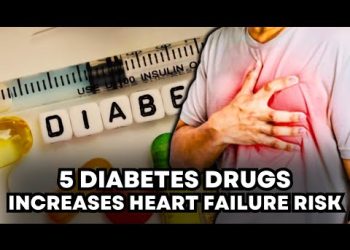Understanding Heart Attack Signs
Heart attacks are often portrayed as dramatic events, where individuals clutch their chests and collapse. However, the reality is that heart attack symptoms can be much subtler and often go unnoticed. Understanding these signs is crucial, as it might lead to saving a life, possibly even your own.
What is a Heart Attack?
A heart attack occurs when there’s an insufficient blood supply to the heart. This usually happens when one of the coronary arteries — which supply blood to the heart itself — becomes blocked, typically by a ruptured plaque. It’s important to differentiate between a heart attack and cardiac arrest, the latter being an electrical stop in heart function.
Chest Pressure is the Classic Sign
Chest pressure is the sign most people associate with heart attacks, often described as an elephant sitting on one’s chest. While common in men, women may also experience chest pressure, often coupled with other symptoms. This discomfort could range from pain to a feeling of heavy tightness.
Shortness of Breath Can Signal Danger
If the heart doesn’t receive adequate blood supply, it can’t pump sufficient blood to the rest of the body. This causes tissues to demand more oxygen, leading to shortness of breath. This symptom is more common in women, especially those with metabolic challenges like type 2 diabetes.
Cold Sweat and Clamminess
Cold sweat or clamminess is a stress response, a classic sign of fight or flight activation. Triggers like pain, less oxygen, or low blood pressure can cause this response. It is equally common in both men and women and can be particularly concerning if accompanied by nausea or pain.
Referred Pain Locations
Sometimes heart pain is felt elsewhere, such as the left arm, neck, back, or shoulder blades. In women, it’s often felt in the jaw and back. This phenomenon occurs due to intense signaling in nerve pathways, causing a spillover effect confusing the brain about the true source of pain.
Nausea and Digestive Symptoms
Nausea or indigestion can accompany heart attacks due to the vagus nerve’s involvement, which serves many visceral organs. Heart cell distress can mistakenly trigger similar responses as food poisoning, making these symptoms more common in women.
Dizziness and Lightheadedness Are Serious
Decreased blood volume to the brain due to a struggling heart can cause dizziness or lightheadedness. It might feel like fainting is imminent. This symptom is acute and sudden, unlike the gradual onset of dehydration or low blood sugar-related dizziness.
Unusual Fatigue as a Warning
Extreme and sudden fatigue, from minimal activities like dressing or grooming, can signal a heart attack. Although more common and sometimes the only symptom in women, it can also occur in men.
Anxiety or Panic Attacks Can Be Deceptive
Anxiety or panic attacks resemble heart attacks, making them frequently misdiagnosed. Symptoms like chest tightness and heart racing occur as the brain’s frontal cortex struggles due to low oxygen levels, overshadowed by the brain’s primitive fear centers during fight-flight responses.
Palpitations and Irregular Heartbeats
Electronic misfiring in a stressed heart may lead to palpitations, felt as pounding or irregular heartbeats. Although more often reported by women, men experience these too but tend to dismiss them, risking significant harm.
Intuition of Something Wrong
A vague sense of something being wrong, often noted as “not feeling right” or a premonition of doom, can signal a heart attack. The body processes these sensations subconsciously, and these intuitions, particularly reported by elderly women, can be shockingly accurate.











